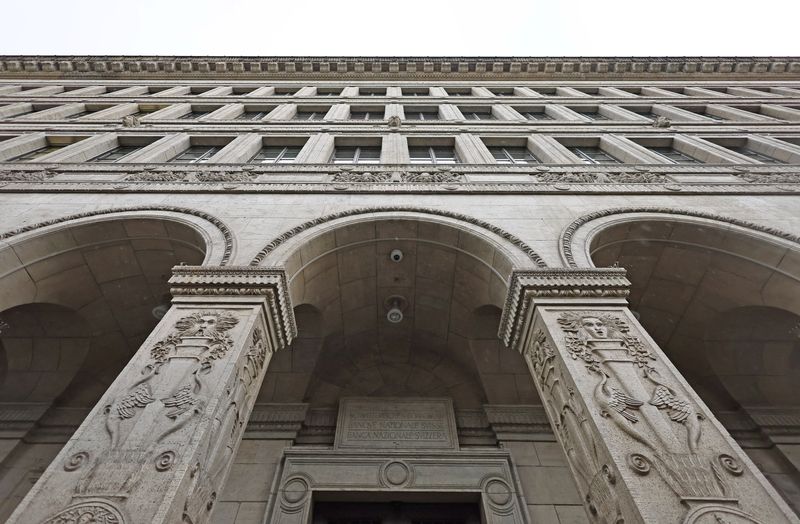BENGALURU (Reuters) - The Swiss National Bank (SNB) will cut its key policy rate by 25 basis points on June 20 for a second straight meeting, according to two-thirds of economists polled by Reuters, a slim majority of whom said the central bank would trim it again in September.
Although that was in line with market pricing of a nearly 75% chance of a June rate cut, the policy decision on Thursday could be a close call given a recent rebound in economic growth and a break in the trend of gently falling inflation.
Despite inflation remaining within the central bank's target of 0-2% since June 2023, SNB Chairman Thomas Jordan recently said the central bank saw a "small upward risk" to its inflation forecast, which if realised would imply the "monetary policy stance would be more accommodative than intended".
Still, a two-thirds majority of economists in the June 12-17 Reuters poll, 22 of 33, predicted the central bank would reduce its main interest rate on Thursday by 25 basis points to 1.25%.
That would follow a surprise cut in March, which made the SNB the first major central bank to dial back tighter monetary policy. The rate is already the lowest among G10 central banks other than the Bank of Japan.
"We expect the policy rate to be cut by 25bp to 1.25% at this upcoming meeting ... it is our base case because inflation is within the target range, it is expected to remain there and the SNB thinks policy is currently restrictive," said George Moran, European economist at Nomura.
"However, it is a very finely balanced decision."
Inflation will average 1.4% this year, which it was last reported in May, the Reuters poll also found, before easing to 1.2% in 2025, largely in line with SNB projections.
Meanwhile, the recent strengthening in the franc, which has risen around 4% against the euro since late May, could provide additional support for any move to ease policy. However, the Swiss currency is still down about 2.8% for the year.
Expectations the U.S. Federal Reserve will reduce rates twice, or even just once, this year, and that the European Central Bank (ECB) - which cut rates on June 6 - will go for fewer rate cuts than previously thought, pose downside risks to the franc's upward march.
One-third of economists polled, 11 of 33, expected the SNB to hold rates on Thursday.
"The Fed is unlikely to lower its policy rate before September, and the ECB has remained vague about its easing process following the lowering of its policy rates," said Alessandro Bee, senior economist at UBS.
"Our conviction for an SNB June rate cut has therefore dropped, and we expect the central bank to maintain its policy rate at 1.50% on June 20."
Also, high services inflation and rental costs could keep price pressures elevated, but they are unlikely to breach the SNB's target anytime soon.
A slim 52% majority of economists, 17 of 33, expected the SNB to reduce rates to 1.00% in September. Poll medians showed the September cut would be the last in the current cycle and the policy rate would stay at 1.00% until at least 2026.
Referring to Jordan's recent comments, UniCredit economists said they saw a terminal rate - an implied neutral policy level - of 1.00%, "under the assumption of a longer-term inflation rate of also about 1%".

"In other words, the potential for further easing of monetary policy seems limited compared to the ECB," they added.
(For other stories from the Reuters global economic poll:)